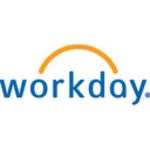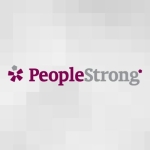What is our primary use case?
I leveraged it for four end-to-end projects. There were a few different use cases, largely around human capital itself.
- The first was around 2009-2010 for a real estate company. They wanted HCM for their employees and contracted agents.
- The second was around 2016-2017 for a pharmaceutical company in Australia. They wanted to replace their other SCM tool with SAP HCM. Earlier, it was called SAP HRM; then it became HCM.
- We also worked on other HCM projects, like for a materials company. They provide materials on demand to companies like aviation/aircraft manufacturers. They had over 10,000 employees and contractors and implemented HCM to optimize their manpower utilization.
- We also worked with Automobile company, along with their IT arm.
The last project ended in November 2023. Since then, I have no HCM-related projects.
How has it helped my organization?
The compliance management functionality is quite good.
Compliance management has two aspects: internal compliance and external compliance, such as laws of the land.
Internally, you can define rules like allowing a hybrid work culture (after the COVID era), which wasn't always the case before.
Earlier, attendance was based on punching cards, but now it can include working from home. You can define these rules and configurations to capture this information.
For external compliance, it allows you to generate reports and offers out-of-the-box support. That's about it.
What is most valuable?
For payroll management, we have the flexibility to define wage types, which allows us to effectively define different pay scales and allowances.
Additionally, we can merge rules to accommodate leaves and policies, like determining holiday entitlements versus leaves taken, and whether it's within the limit.
If it's within the limit, the full salary is allowed. Otherwise, based on the rule, the amount is deducted before releasing the final amount. This is done through Infotypes. By defining these details, we can accurately calculate summaries and other relevant information.
What needs improvement?
The limitation of HCM compared to new-era human capital management solutions is the cost. While those solutions offer similar features at a lower price, they are not typically used by large enterprises.
However, for small and medium enterprises, the HCM licensing and maintenance costs are quite high. There are numerous solutions like Zoho and Odoo that offer subscription models at a much lower cost, even as low as $10. This significantly impacts SAP's market share, especially among smaller businesses.
The high cost is the main reason why it's not widely adopted by smaller businesses. Currently, it's largely used by big enterprises, and only a small percentage of SAP users actually utilize HCM, even though they might be using other SAP modules. The small organizations are not keen on using it.
Buyer's Guide
SAP HCM
January 2026
Learn what your peers think about SAP HCM. Get advice and tips from experienced pros sharing their opinions. Updated: January 2026.
881,757 professionals have used our research since 2012.
For how long have I used the solution?
I have been using it for three to four years now.
What do I think about the stability of the solution?
The on-premises part sometimes faces issues and gets on the slower side, which could be due to server sizing.
If the server isn't scaled up as the load increases, it can affect stability. However, overall, the functionality and stability are okay. It's not on the negative side.
What do I think about the scalability of the solution?
It is scalable. There are enhancement points, so we have the flexibility to scale up. However, every enhancement comes with certain limitations.
You can't scale to something unexpected, but all practical needs can be brought within the framework. It's scalable enough.
For SuccessFactors, which is cloud-based, there is a limitation. You can't change everything. It provides scalability up to 30%.
How are customer service and support?
The customer service and support are satisfactory, but the ecosystem part needs some revisiting.
If the ecosystem isn't aware of all available features, it's hard to sell to new customers. For example, if you've added ten features but I, as a channel partner, know only two, I'll keep selling only those two. If a customer asks about the other eight, I'll either call it customization or reach out to you. This gives the wrong impression. If there are ten features, it should be known that there are ten, not just two. So, they need to work on their ecosystem.
How would you rate customer service and support?
Which solution did I use previously and why did I switch?
I have worked with a few of the competitors, including Zoho.
How was the initial setup?
HCM itself isn't installed anymore, as it's now SuccessFactors. That's pretty easy. Earlier, HCM required an implementation cycle, not just deployment. Now, with SuccessFactors, it's fast and deployed out of the box. However, SuccessFactors has limitations due to being cloud-based, so customization is limited.
Additionally, the consultants offering SuccessFactors or HCM on a subscription model tend to sell what they know rather than the full capabilities of the tool. So even if the product offers ten features, they might only talk about two and assume the rest require customization. There's a lack of awareness about the full potential.
SAP HCM requires a full-blown implementation cycle: installation, configuration to your policies, and then usage. This takes about a year.
The newer version, SuccessFactors, is quicker. It takes three to four months, or six months, with practical delays. This is because SuccessFactors is cloud-based and only requires enabling from SAP's side. Your server or cloud is ready, so you just create your tenant.
The older HCM implementation and configuration took longer due to setting up servers.
In a nutshell, if it is HCM, it usually takes around six to nine months. SuccessFactors, however, takes less time—typically three to six months. The difference is that SuccessFactors is cloud-based, while HCM is on-premises.
What about the implementation team?
The resources required for the deployment depend not on the tool but on the dimension/size of the enterprise and where you're delivering it.
For example, if all information can be gathered from one office, the process is faster. But, if you need to visit multiple offices, like in a company with branches in 180 countries, the process is much more complex.
Even within one country, like India, a company with 35 different offices and a minimum of 1,000 employees per office would require more time.
On average, for one HCM implementation, you need two functional experts (one senior, one junior or midrange), two technical experts, one project manager, one basis expert, and one testing person.
So, six to seven people can do an HCM implementation. Similarly, six to seven people would be required for SuccessFactors, which is cloud-based. This is just an average estimate.
What was our ROI?
For a larger part of the SAP products, ROI comes on average within three to five years. So that's okay.
From my perspective, it's fairly in the range.
What's my experience with pricing, setup cost, and licensing?
It is costly but feature-rich.
What other advice do I have?
Overall, I would rate the solution an eight out of ten.
I would recommend using it. Our biggest plus is its integration with finance. The second point is that it is scalable.
We can add as many different policies or rules as we might need internally in any enterprise. There are always a number of those.
It provides some reports that are AI-enabled and others that are process-based. These reports give us detailed insights into where we stand as a group and where we can look for improvements. These features are quite user-friendly.
Disclosure: My company has a business relationship with this vendor other than being a customer. Partner


















